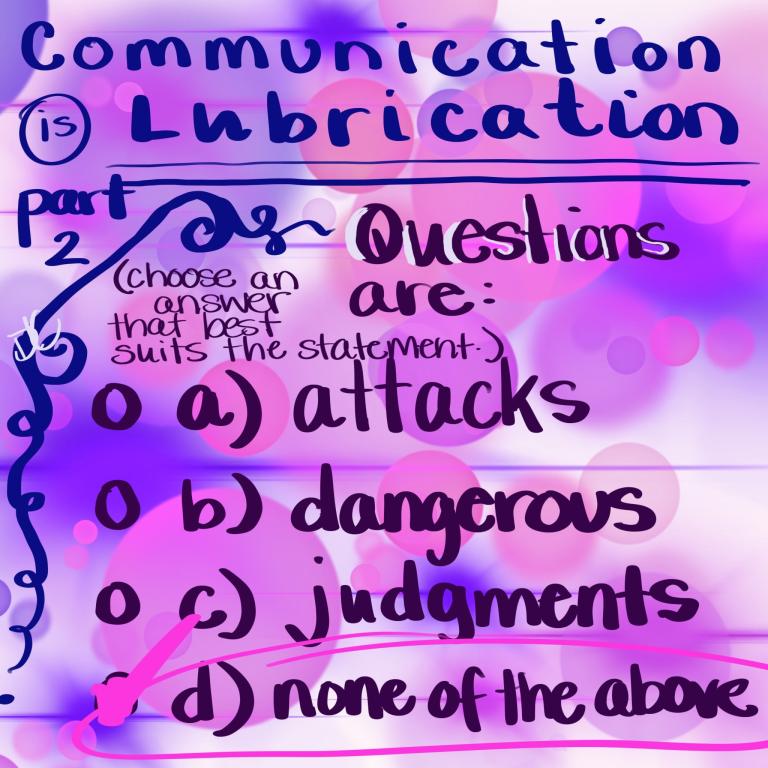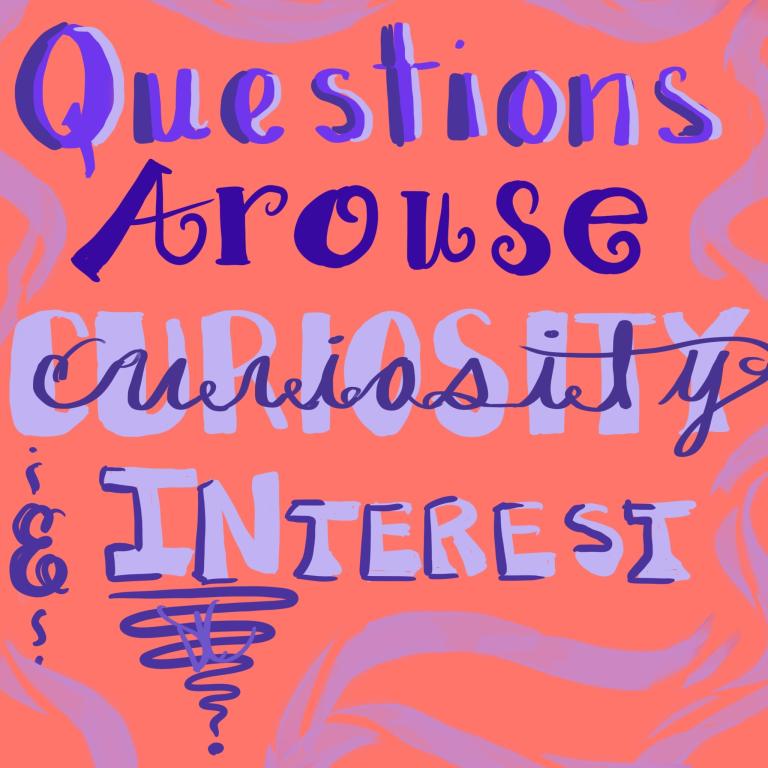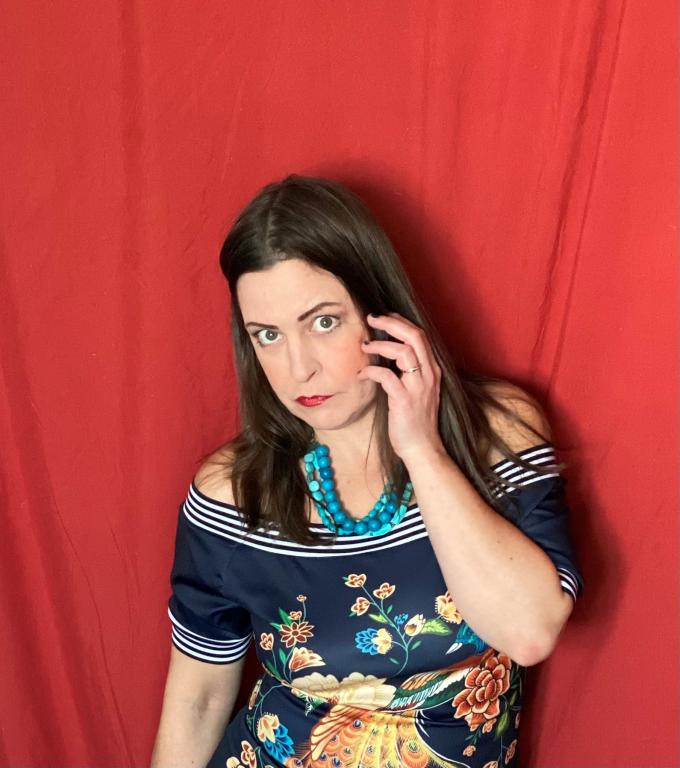 The internet influence of insta-reaction, anticipated reactions, and counterarguments drastically erode eroticism. Our society has graciously accepted this new way to interact with individuals that we do not know and collectively, we have endorsed this way as an anti-erotic engagement program that interrupts our most important connections.
The internet influence of insta-reaction, anticipated reactions, and counterarguments drastically erode eroticism. Our society has graciously accepted this new way to interact with individuals that we do not know and collectively, we have endorsed this way as an anti-erotic engagement program that interrupts our most important connections.
It trickles into our intimate relationships. This is one of many reasons why couples struggle to really dig into bigger conversations about their relationship. We initiate vulnerable conversations with our partners by imitating our exterior discourse dynamic. Let it be known that this approach blatantly violates the principles of mutual recognition.
Questions are often discouraged in many areas of our daily interactions. They take up time and energy, they take the focus off the topic at hand, and in many instances, questions are deemed dangerous and even radical. Many are downright insulted by questions altogether, “Is that really the question you are going to ask?” or “How dare you question my experience!”
Questions are a part of conversations. Naturally, the sharing of our stories will arouse curiosity in the listener of our speech. You say, “I broke my leg.” As the listener, I would respond, “Oh no! Are you okay? What happened? Which leg?” You would naturally answer my questions, “Yeah, it hurts bad, but I’ll be OK. They gave me pain meds. My right leg. I just totally missed a step bringing groceries in the house and fell just the right way to crack! Broke a bone.”
However, the rules of engagement are often different outside of our intimate relationships. If you take the social media realm, for instance, questions are often received, not as clarity-seeking interrogative sentences, but as judgments. In simpler terms, the assumed equation is that questions=judgments. In other pockets, a simpler formula posits questions= disbelief.
Let’s go back to the broken leg. You say, “I broke my leg.” I respond, “Oh no! Are you okay? What happened? Which leg?” If we were engaged on Twitter, for example, your typical response would go something like this, “Are you judging me? So, I am somehow less of a person and lazy because I broke my leg?” Another example could go like this, “Why are you asking that? Don’t you believe me? I said I broke my leg. Believe me.”
This is a common way that humans interact with one another on daily basis. We feel threatened by questions. Many say that questions infer judgment, but I think that has more to do with the individual feeling judged by the questions. Maybe that person was once judged for not asking a question and has attached the two terms, “judgment” and “question” together in a negative way. Maybe this person was judged for not asking the “right” questions. It could even be that in the past, this individual received a judgment after answering questions. There are so many possibilities, but I think the judger carries the burden here.
Some say that questions only “revictimize” an individual when they are asked to recall their experience. But the reality is that when we recall our experience and share of pain, say breaking a leg, or being held at gunpoint (like my grandmother was) for instance, it can actually enable healing.
Sharing our experience with another in fuller detail brings the listener into the story. In return, they let us know that we are both seen and heard. This is an important reciprocal process of developed intimate relationships.
Why Ask Why?
The reason we ask questions is so that we can gain clarity, clarity adds definition, and definition helps us better envision and understand the fullness of the story and the pain. Isn’t that what we are after when we share any story? Don’t we want it validated? Aren’t we seeking resonance with another when we share our stories, even if they are just about broken legs?
Asking questions has nothing to do with belief. Questions do not invalidate the initial declarative statement. This idea that “belief” must be present in an exchange of information is a bit extreme, anyway. One cannot believe what one does not yet know or understand. If someone tells you that they were held at gunpoint and robbed, as a police officer, for example, you’d have to ask several questions to collect information for an investigation. It’s about acquiring information. Information is important for intimacy development in relationships.
This Model is Flawed
If you are in a relationship where this model of engagement is utilized in intimate conversations, having deeper, bigger conversations are going to be a great challenge. Questions that are deemed dangerous are often dubbed this way by cult leaders and religious zealots. If your relationship has a regulation against asking questions, then what is being pursued is a kind of blind conformity. Relationships require the development of mutual recognition and respect and one cannot develop such components without the ability to come from a place of curiosity and care and ask questions.
We must unlearn this idea that questions accuse, attack, condemn, or judge an individual. Questions humanize the individual. This means that not asking questions dehumanizes a person. Why wouldn’t you want to ask questions when someone shares an experience with you, I wonder? Isn’t that how one shows interest in another? This call to cancel questions has me wondering if we are intentionally dehumanizing the experiences of others. As if we don’t want to be able to understand and relate to another’s story.
However, the more we add to the story, the more we understand where the person is coming from. The more we understand where a person is coming from, the better we can relate to their experience and be affected, changed, and/or moved by it. This creates a shared experience and produces a vicarious experience I can participate in mentally and emotionally. It is in this space that connection and relationship development takes place.
The ability to share in a vicarious experience is essential for sharing sexual fantasies with our partners. The ability to receive questions as a demonstration of our partner’s curiosity and care rather than disbelief and judgment is what facilitates an erotic evolution within a relationship.
Ultimately, we want to get beyond the space of just asking surface or testimonial questions in our relationships so that we can utilize this amazing feature of conversation as lubrication. It’s in this space that the questions we ask change drastically and open a new space for bigger conversations about arousal, desire, fantasy, and novelty. We greet questions as invitations for more. When someone asks me more about something I care about, to me, it says they are interested in what I have to say and how that experience impacted me.
Let us take into consideration that questions will bring us closer. Questions reveal curiosity and care, interest, and offer invitations to continue sharing space.
Follow me on TikTok













